The stark reality of the Ukrainian refugee crisis at the Romanian-Hungarian border
David Cohen travelled to Csengersima on the Romanian-Hungarian border to help with the Red Cross’s relief effort for the Ukrainian refugees fleeing civilian bombings
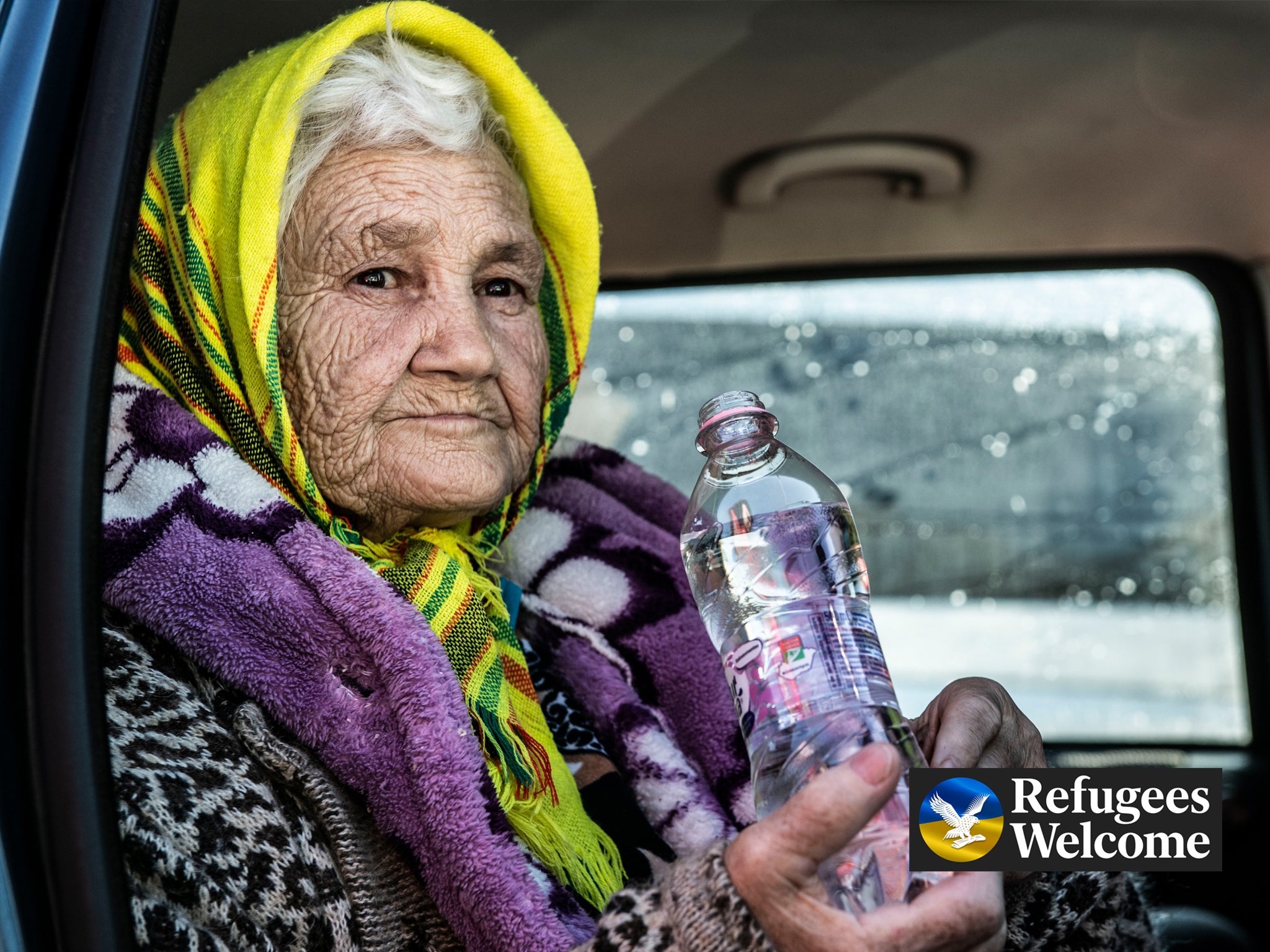
The queue was three hours long. A logjam of cars, bumper to bumper, packed with women and children who had fled Ukraine into Moldova or Romania, now waited to enter the Schengen area at Csengersima on the Romanian-Hungarian border.
The refugees looked shattered after travelling for days, but as a man in a red jacket approached on foot, eyes lit up, windows rolled down and hands reached out.
The red jacket belonged to Peter Turi, 37, a Hungarian Red Cross volunteer, who carried a tray laden with refreshments - water, juice, ham sandwiches, snacks and energy bars – as well as baby products and bubbles which he offered to grateful mothers and children in their cars.
Peter and his Red Cross team of four were the only charity workers operating at this border crossing which, in the first weeks of the conflict, had filled with cars stretching 10km all the way back to Satu Mare in Romania.
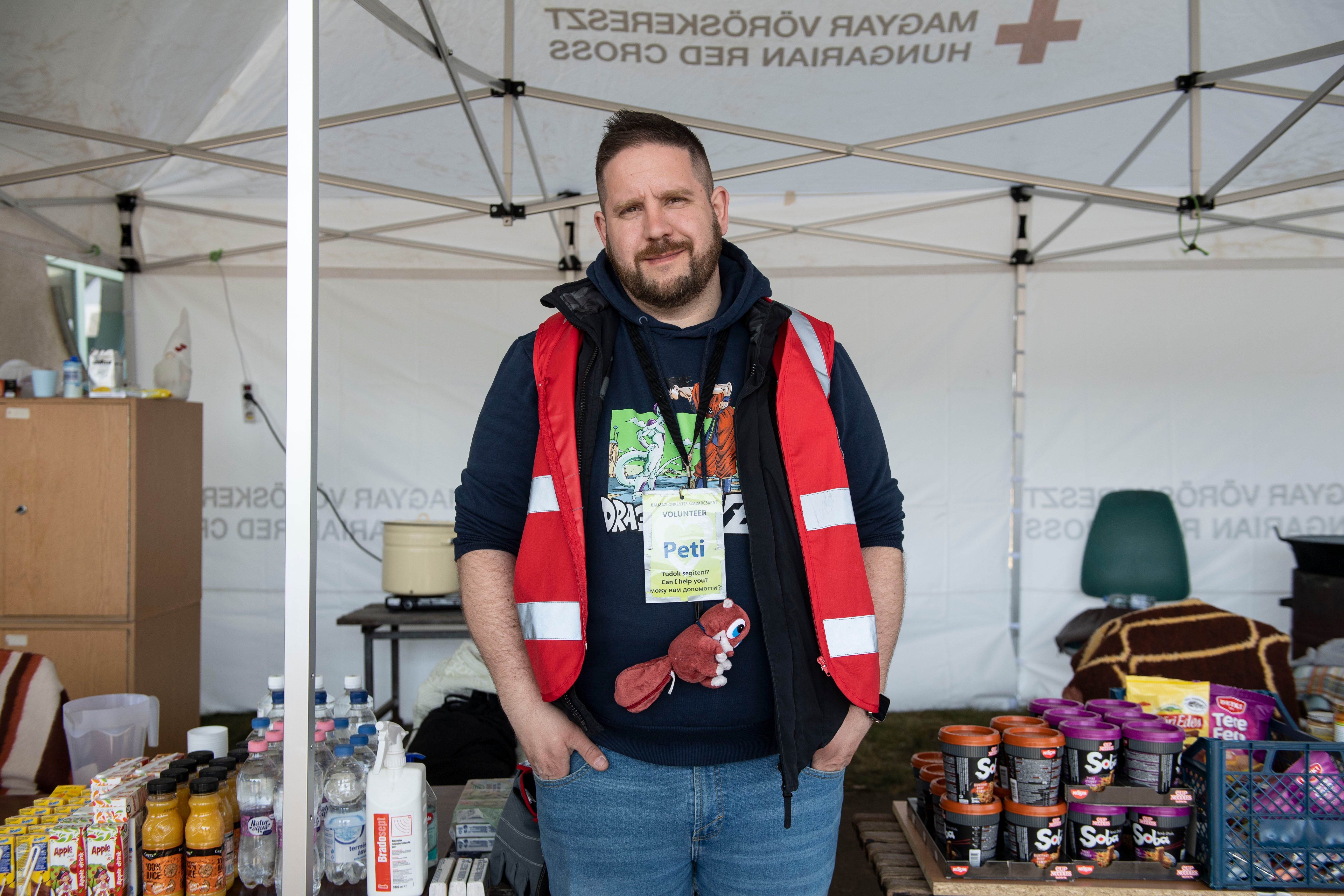
I, too, had donned the Red Cross livery. For one day I was to be Peter’s helper, crossing the checkpoint into no-man’s land to offer help to waiting refugees in their vehicles.
“Thank you for your care,” said Marja Nesterova, a professor from a university in Kyiv accompanied by her four children.
“We have been travelling four days and now we are waiting here hours with no water, no toilet, no café, so we really appreciate you being here.” She added: ‘In Kyiv, we were sleeping mostly in the basement, but in the last week, the bombs got closer and louder – and we got frightened.” She smiled ruefully.
“According to Ukrainian law, a mother who drives across bombed-out country with four kids can be awarded Mother of the Year. I save my children. We go to Italy.”
In the adjacent lane, Natalia, a pharmacist, sat in her Porsche alongside her 10-year-old son, tears streaking down her cheeks as she choked up about the husband she left behind in embattled Kharkiv three days ago.
She said: “My son is worried about his father. I try to comfort him, but I am worried too.”
A few cars behind, we gave water and a sandwich to Luba Grihovna, an elderly lady in a colourful head scarf who had travelled from her village near Kherson in the south.
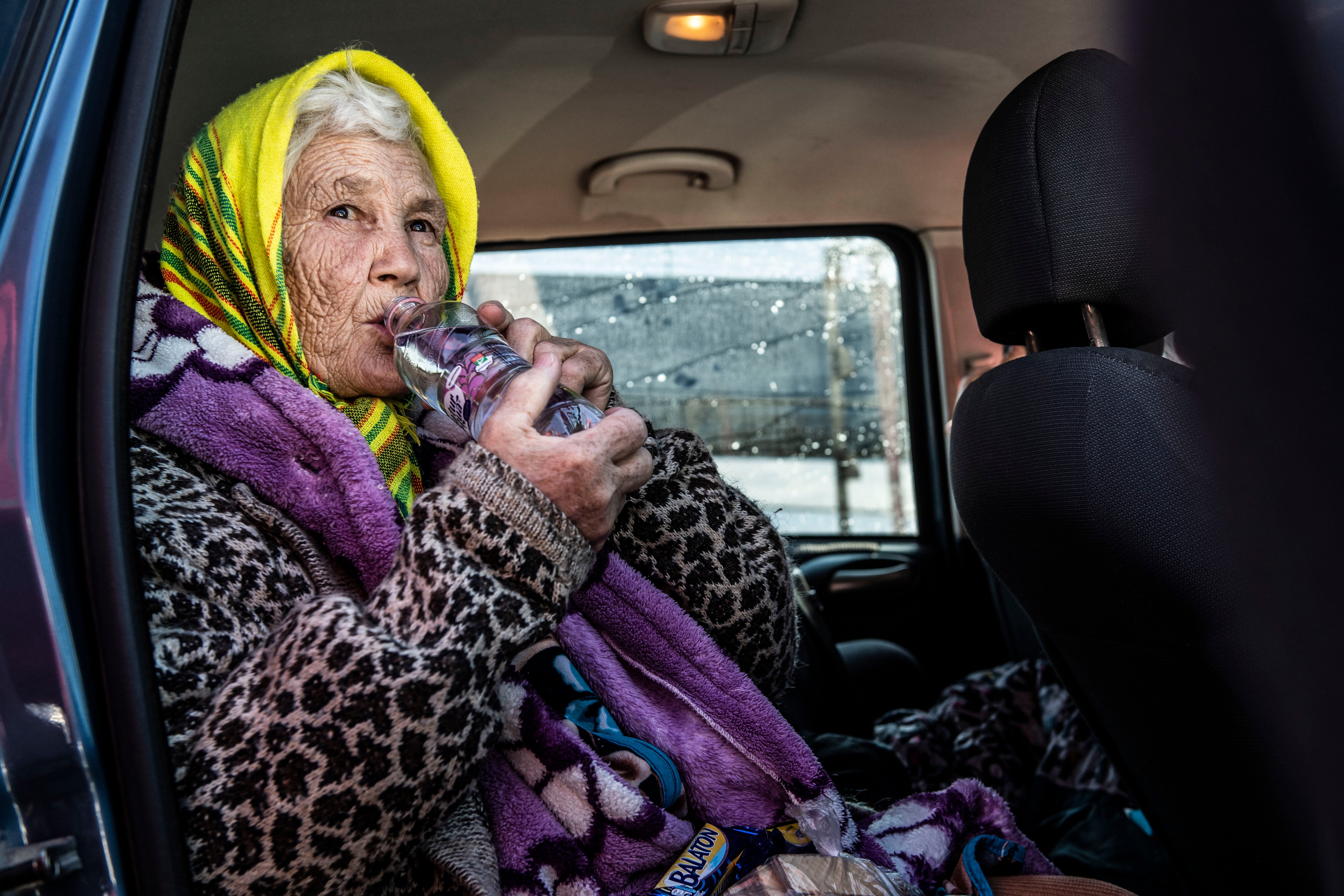
“We have been on the road four days,” she said. “My legs are aching, my heart is aching, my village is destroyed. I didn’t want to leave my beautiful garden but my daughter took me and my grandchildren to save us from the bombs and here we are.”
They had crossed at the Ukrainian Moldovan border and were now seeking to enter Hungary on route to Poland. More than 900,000 of the 3.6 million people who have fled Ukraine have done so through Moldova or Romania, but most refugees use these countries as a transit zone on their way to the Schengen area, where they can access free movement in Europe for 90 days.
Many Ukrainians do not have modern biometric passports and have to be processed for temporary visas, part of the reason for the long delays.
Peter said: “Many people have not come prepared for such a long car ride. They arrive short of baby food and nappies and can be thirsty, hungry and exhausted.”
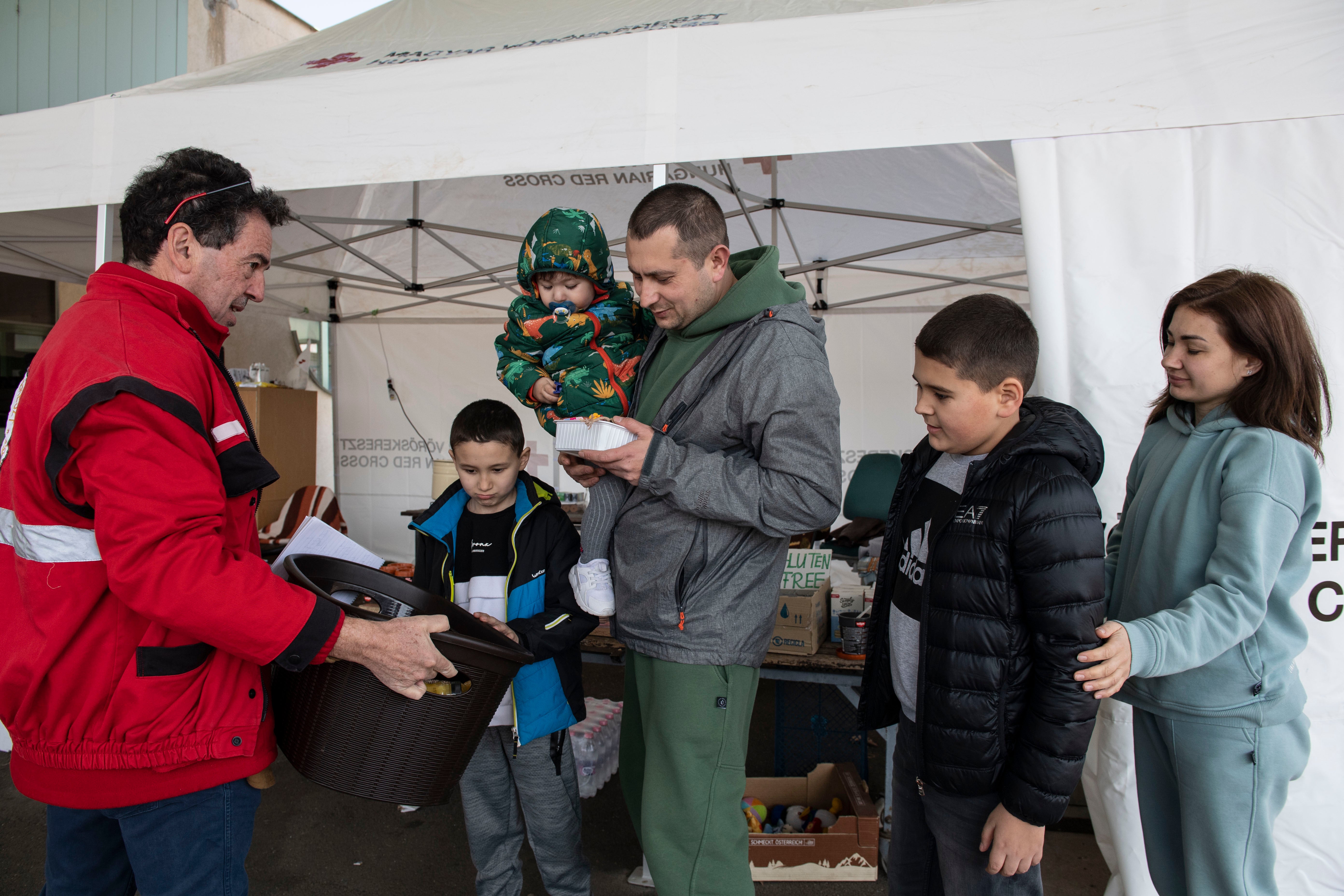
Peter had been here since the start of the conflict, leaving behind his job is as a theatre sound engineer and his family who live 120km away in Debrecen. “I had a call from somebody at the border who told me people were queuing for 11 hours with no help. I have twin girls aged five and an eight-month-old baby and my heart went out to these parents. I spoke to my wife, whose parents were able to help with our kids, and came a month ago.”
For two and a half weeks, Peter operated on his own with a friend, just the two of them, independent volunteers sourcing free food, drink and baby supplies and handing them out to desperate refugees in cars. “You couldn’t see the end of the queue,” he said. “Everybody was extremely grateful.”
The Independent has set up a petition calling on the UK government to be at the forefront of the international community offering aid and support to those in Ukraine. To sign the petition click here.
Ten days ago, the Red Cross joined the operation, setting up a roadside tent and bringing in supplies, and Peter was signed up as a Red Cross volunteer. Red Cross team leader Emese Martini Sabo paid tribute to Peter. “What he did was a true citizen humanitarian effort,” she said.
The Red Cross is one of 13 member charities of the Disasters Emergency Committee, which is the beneficiary of our Refugees Welcome appeal and which, together with the appeal of our sister paper, The Evening Standard, has now raised more than £400,000.
One woman, Hester Berg, a South African living in Austria was returning from the Ukrainian-Romanian border having dropped off a car-load of personal hygiene products, nappies and dog food at the border. Why had she come?
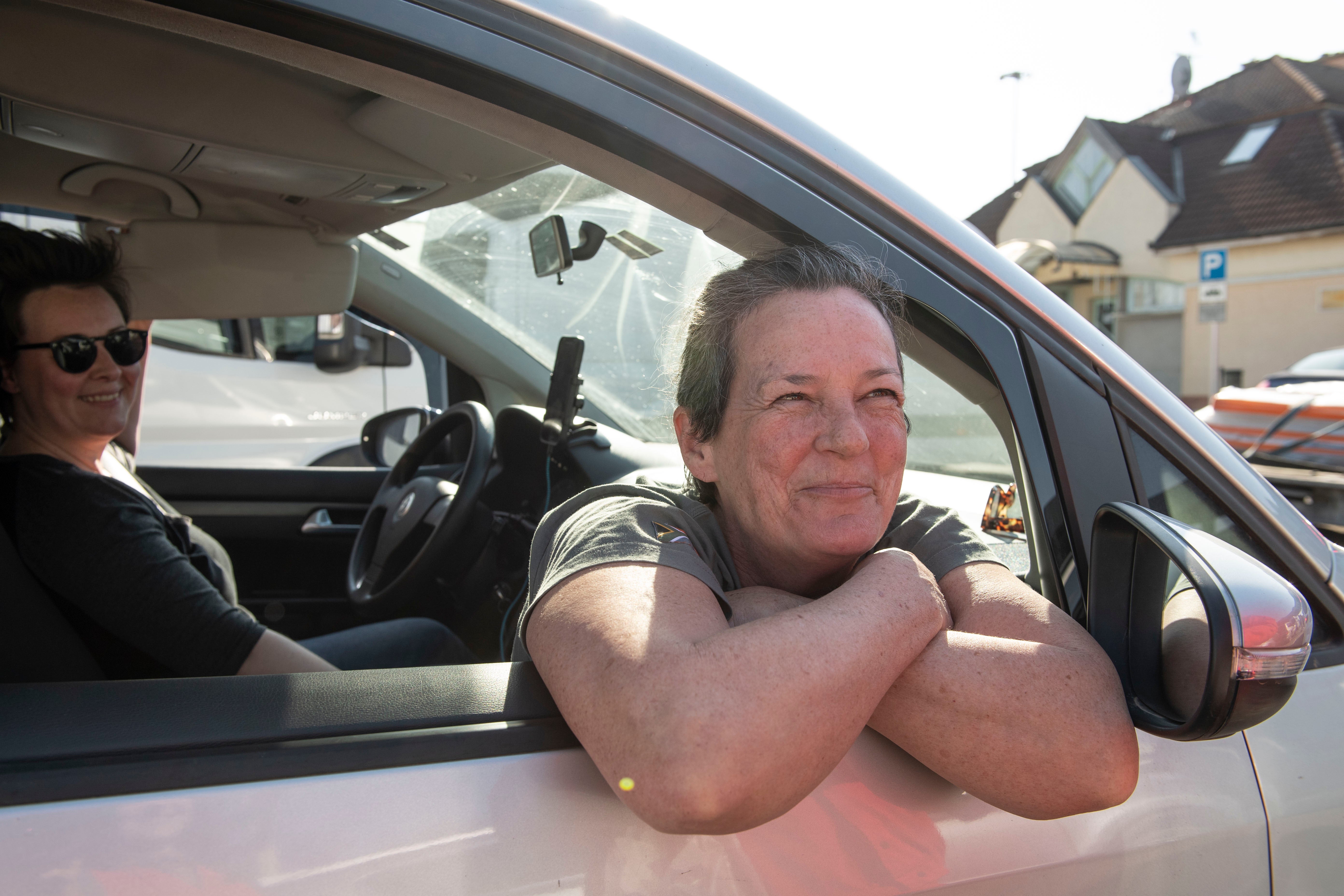
“When the fighting started, it dawned on me that the distance from Vienna where I live to the Ukrainian border is less than that from Johannesburg where I grew up to Cape Town and there is no way I could sit in Johannesburg while Cape Town got bombed, so I got involved.”
Hester has done four trips of nine hours each way to the Polish, Hungarian and Romanian borders with Ukraine, but the situation was ever changing, she said.
“In the beginning, it was mainly people with means and money who were fleeing, but now you’ve got people with nothing and who are really struggling.” Anastasia, 30, and her mother, Natalia, 61, got out of their car to tell us about fleeing Kyiv. “It’s a lottery,” said Anastasia. “Bombs can land on your house at any time. One bomb was so close, it made our house shake and that was the signal for us to leave. We are headed to Germany because my mum is a psychologist and I speak German and together we can be of use to fellow refugees.”
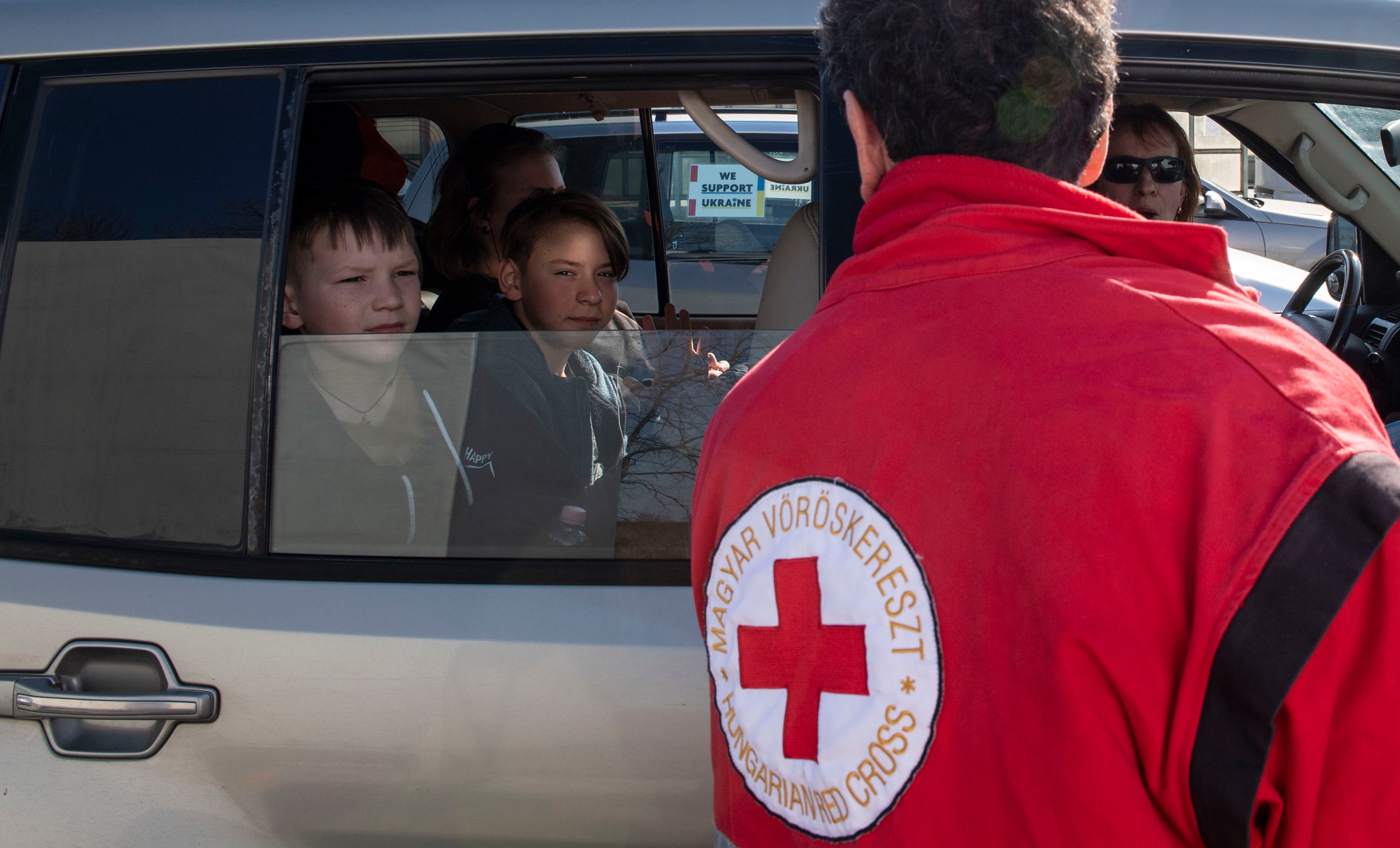
There was even the occasional father, such as Ruslan, who had come with his wife and three young sons from Odessa, a beneficiary of the Ukrainian law that allowed men to leave if they are financially supporting three or more children under 18.
On the whole, though, the refugees we saw in their cars at Csengersima seemed in better shape than those we had met walking across the Polish-Ukrainian border at Kroscienko two weeks ago, or arriving by train the day before at Zahony on the Hungarian-Ukrainian border.
A car, it seemed, afforded at least a modicum of comfort and control. As we walked the line of vehicles, people asked our Ukrainian-Hungarian speaking interpreter, Georgina Ruszinko: where can we get free SIM cards? Does anyone have crayons for my children? Where are toilets?
They were relieved to find someone who could speak their language, as was a Hungarian police officer who ran up in a panic asking us for “urgent nappies” for a crying one-month-old baby. All around, as cars inched forward, there was a sense of relief to have made it this far – but also of steeling themselves. The ordeal of these brave, dignified, resilient refugees is far from over.
Additional reporting and translating by Georgina Ruszinko
The Independent has a proud history of campaigning for the rights of the most vulnerable, and we first ran our Refugees Welcome campaign during the war in Syria in 2015. Now, as we renew our campaign and launch this petition in the wake of the unfolding Ukrainian crisis, we are calling on the government to go further and faster to ensure help is delivered. To find out more about our Refugees Welcome campaign, click here. To sign the petition click here. If you would like to donate then please click here for our GoFundMe page.
Join our commenting forum
Join thought-provoking conversations, follow other Independent readers and see their replies
Comments
Bookmark popover
Removed from bookmarks